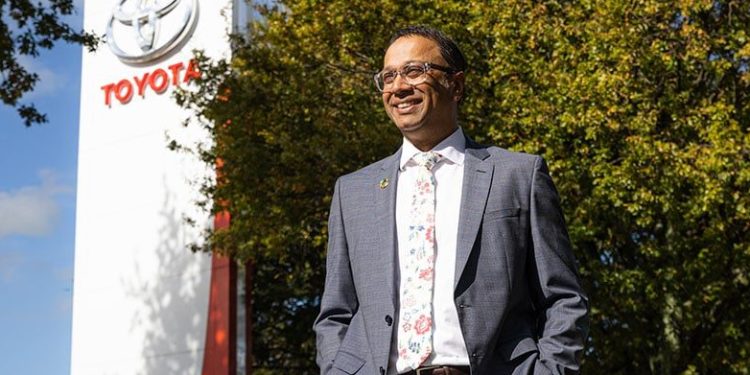Toyota fourth in 2023 Kantar Corporate Reputation Index
Words: Supplied
Toyota moved up three places to fourth in the 2023 Kantar Corporate Reputation Index, a significant feat given that Toyota is the only car brand in the Top 50 and one of only two global brands in the Top 20.
Established in New Zealand in 2015, the Kantar Corporate Reputation Index uses Kantar’s global RepZ framework with standardised reputation attributes for Trust (37 per cent weighting), Leadership (24 per cent), Fairness (22 per cent), and Responsibility (16 per cent). The survey was conducted in February and March 2023.
With Trust forming the largest contribution to corporate reputation, it should come as no surprise that Toyota performed well on the Kantar Index (third on trust behind Air New Zealand and Mitre 10) as the company has developed a global and local reputation for trust and reliability over many decades. The brand is built on dependability and excellence of both its products and customer service.
Toyota New Zealand Chief Executive Neeraj Lala says the company is extremely proud of its progress in the Kantar Corporate Reputation Index.
“It’s truly humbling to see our overall ranking improve. It reflects the efforts of all Toyota staff across the country from our Stores to Toyota Financial Services in what has been a challenging period for most industries, including the automotive sector. I want to also congratulate the three companies ahead of us who have also navigated considerable disruption over the past 12 months,” he says.
Toyota was one of the few corporates to have improved its Responsibility pillar score, which measures how a company treats its employees and protects the environment. Toyota was fourth in this pillar after Air NZ, Mitre 10, and Kathmandu.
“In the past year we have set ourselves an ambitious Science-based Target to reduce the tailpipe carbon emissions of our portfolio by a minimum of 46 per cent by 2030. That’s a big ask for a brand that is committed to offering the widest range of vehicles to meet the needs of all New Zealanders – from utes for farmers, vans for plumbers and hatchbacks or SUVs for commuters and retirees.
“But we are on track to get there with our focus on hybrids, and at the end of this year, the first battery electric Toyota will be on sale in New Zealand. From the first of September this year we will import only electrified passenger vehicles, where they exist. Almost three quarters of our vehicles are now available in an electrified version.”
Through its network of 60 Stores in New Zealand – from Whangarei to Invercargill – Toyota is firmly connected to its communities and supports dozens of community groups as well as its national support of Olympians and Paralympians.
“When it comes down to it, it’s about contributing to the growth of Aotearoa New Zealand’s mana,” says Neeraj.
“At a national level we recently signed up to provide a crucial funding boost to Road Safety Education. We’re helping teach young drivers how to be responsible when they jump behind the wheel and the consequences of poor judgement, social media distractions and inattention.”
Toyota is playing a key role in accelerating national progress in reducing road deaths, not just through the sale of safe new and used vehicles but in delivering road safety education in high schools.
As market leader, Toyota embraces the enormous responsibility to look after its people, communities, and the planet when it comes to mobility. The company is transitioning from a traditional automaker to a mobility company focused on sustainable technologies and transport.
“Our goal is to give all kiwis affordable access to mobility. We need to make sure no one is left behind. That’s why we’re investing in new ways of moving, like our car sharing scheme City Hop, and the introduction of micro-mobility for senior citizens,” Neeraj says.





